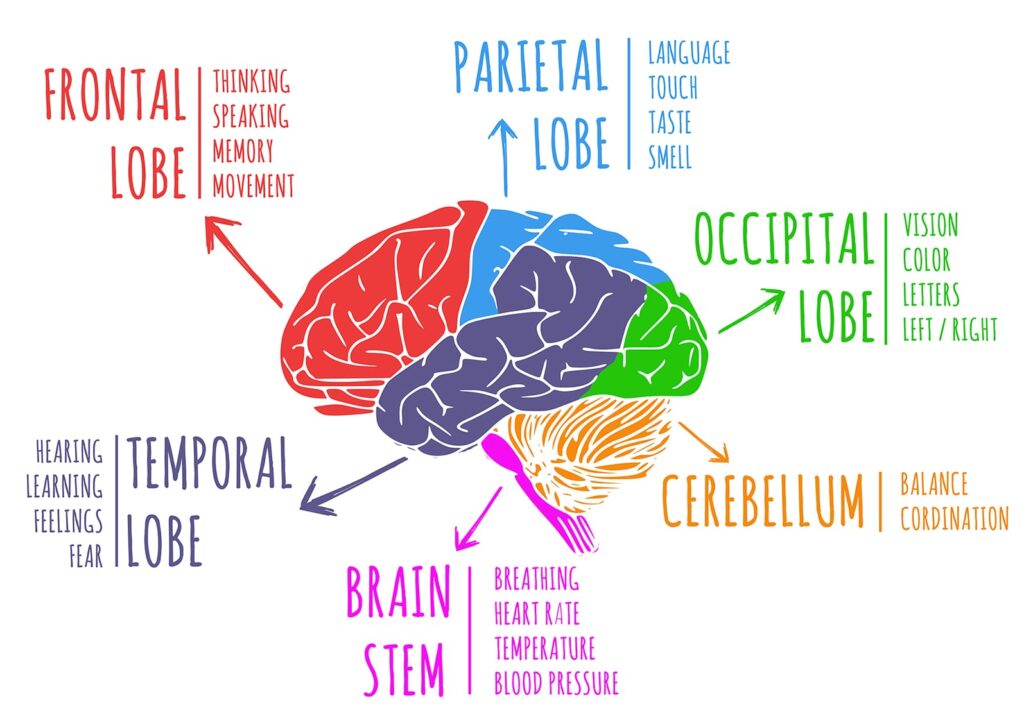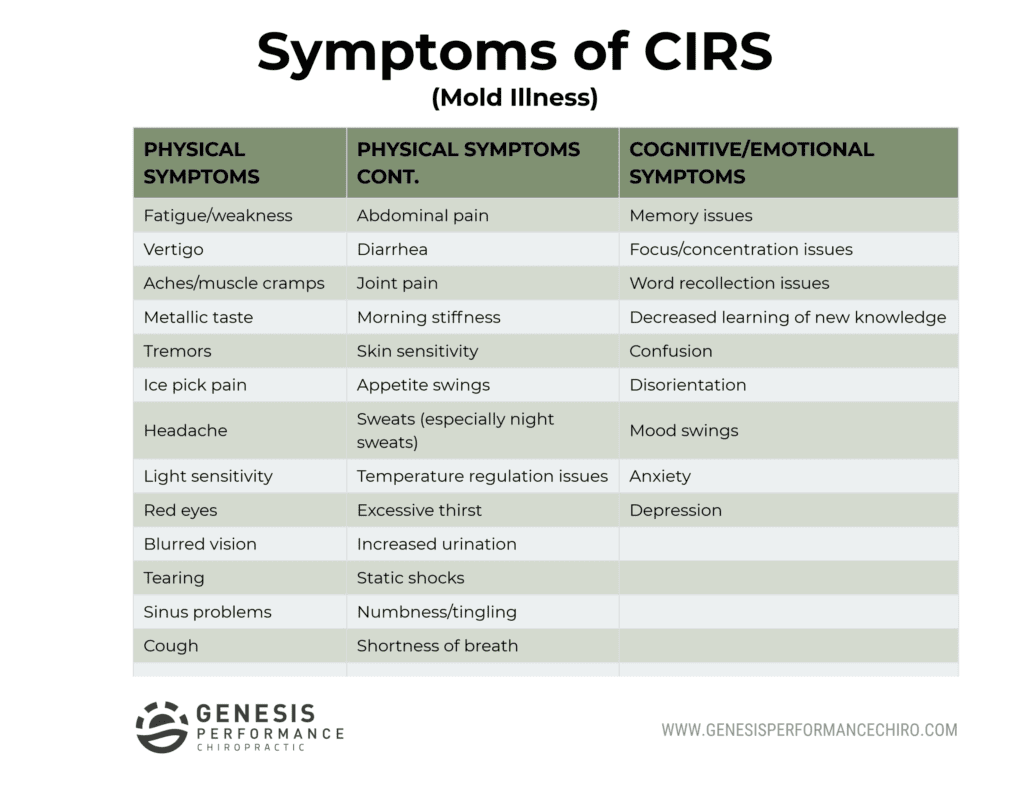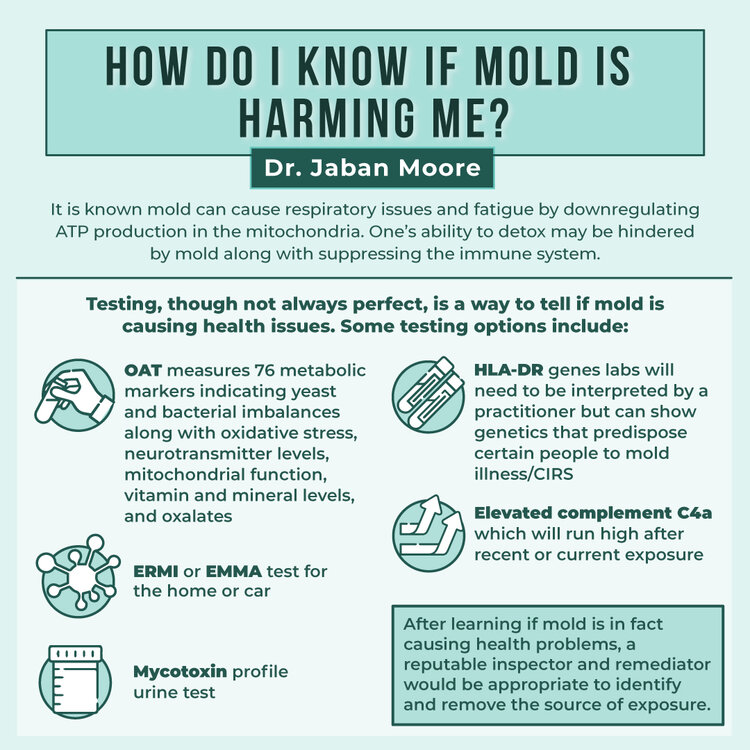In this comprehensive guide, you will learn about the neurological symptoms of mold exposure and how to recognize and address them. Mold exposure can have serious effects on your neurological system, causing a range of symptoms that can be debilitating and affect your quality of life. By understanding these symptoms and taking proactive steps to address them, you can seek appropriate medical help and take measures to mitigate the effects of mold exposure on your health.
The first step in recognizing and addressing neurological symptoms of mold exposure is understanding what to look out for. Common symptoms include headaches, difficulty concentrating, memory problems, dizziness, and fatigue. These symptoms can often be mistaken for other conditions, so it’s important to consult a healthcare professional to determine if mold exposure is the root cause. Once you have identified the issue, it’s crucial to address the mold problem in your environment and take steps to prevent further exposure. This may involve hiring a professional mold remediation service, improving ventilation in your home or workplace, and keeping humidity levels in check. By taking these measures and being proactive about your health, you can minimize the impact of mold exposure on your neurological system.

Symptoms of Mold Exposure
Mold exposure can have a wide range of symptoms, many of which are neurological in nature. These symptoms can vary from mild to severe and can have a significant impact on an individual’s quality of life. It is important to recognize these symptoms and seek appropriate medical attention. Here are some common neurological symptoms of mold exposure:
Headaches
One of the most common symptoms of mold exposure is headaches. These headaches can range from mild to severe and can be accompanied by other symptoms such as nasal congestion and sinus pressure. Headaches caused by mold exposure are often persistent and can be difficult to treat with typical headache medications.
Dizziness
Dizziness is another common neurological symptom of mold exposure. Individuals may experience a sensation of lightheadedness or loss of balance. This can be particularly concerning, as it can increase the risk of falls and injuries.
Fatigue
Feeling excessively tired or fatigued is a frequent symptom reported by individuals exposed to mold. This fatigue can be debilitating and may interfere with daily activities. In some cases, individuals may find it difficult to perform even simple tasks due to extreme tiredness.
Memory problems
Mold exposure has been linked to cognitive issues, including memory problems. Individuals may experience difficulty remembering things, concentrating, or retaining new information. These memory problems can have a significant impact on work, school, and personal life.
Difficulty concentrating
In addition to memory problems, individuals exposed to mold may have difficulty concentrating. They may find it challenging to stay focused on tasks or to follow conversations. This can be frustrating and can impact productivity and overall functioning.
Neurological Effects of Mold Exposure
Mold exposure can also lead to more severe neurological effects in some cases. These effects can be particularly concerning and may require specialized medical attention. Here are some of the neurological effects that can result from mold exposure:
Brain fog
One of the most common neurological effects of mold exposure is brain fog. Individuals may experience a feeling of mental confusion or haziness. They may have difficulty thinking clearly or forming coherent thoughts. This can greatly affect cognitive function and overall quality of life.
Neuropathy
Neuropathy refers to damage or dysfunction of the nerves. Mold exposure has been linked to the development of neuropathy, which can cause symptoms such as numbness, tingling, and pain in the affected areas. Neuropathy can be debilitating and may require specialized treatment.
Tremors
Tremors, or uncontrollable shaking, can also occur as a neurological effect of mold exposure. These tremors can be mild or severe and may interfere with daily activities and motor function. It is important to address tremors promptly and seek medical evaluation.
Seizures
In rare cases, mold exposure can lead to seizures. Seizures involve abnormal electrical activity in the brain and can manifest as convulsions, loss of consciousness, and abnormal movements. If you or someone you know experiences a seizure, seek immediate medical attention.
Depression and anxiety
Mold exposure can also have a profound impact on mental health. It has been linked to the development or worsening of depression and anxiety symptoms. Individuals may experience persistent sadness, feelings of hopelessness, or excessive worry. It is important to address these mental health symptoms in conjunction with neurological effects.
Recognizing Mold-Related Neurological Symptoms
Recognizing the neurological symptoms of mold exposure is crucial for early intervention and effective treatment. Medical professionals can play a key role in this process. Here are some steps that may be taken to recognize mold-related neurological symptoms:
Reviewing medical history
During a medical evaluation, the healthcare provider will review the individual’s medical history in detail. This includes any known exposures to mold or environments with high mold levels. The presence of neurological symptoms alongside mold exposure can raise suspicion for mold-related neurological issues.
Performing neurological examination
A thorough neurological examination will be conducted to assess the functioning of the nervous system. This may involve assessing reflexes, coordination, sensation, and muscle strength. Any abnormalities found during the examination can help guide further diagnostic testing.
Testing for mold allergens
Allergy testing may be recommended to determine if an individual has an allergic response to mold. This can involve skin prick tests or blood tests. Positive allergy test results, along with neurological symptoms, can further support the diagnosis of mold-related neurological issues.
Considering environmental factors
The healthcare provider will also consider environmental factors that may contribute to mold exposure. This includes assessing the individual’s living or working conditions, as well as any recent water damage or leaks. Identifying and addressing the source of mold is crucial in preventing further exposure and managing the neurological symptoms.
Consulting with specialists
In complex cases, it may be necessary to consult with specialists such as neurologists or environmental specialists. These specialists can provide further expertise in diagnosing and managing mold-related neurological issues. Collaboration among healthcare professionals is essential in providing comprehensive care.
Addressing Mold-Related Neurological Issues
Once mold-related neurological issues have been recognized and diagnosed, it is important to take prompt action to address the problem. Here are some steps that may be taken to address mold-related neurological issues:
Removing mold exposure source
The first step in addressing mold-related neurological issues is to identify and remove the source of mold. This may involve professional mold remediation to ensure safe and effective removal. Removing the source of mold exposure is crucial for preventing further health issues and promoting recovery.
Improving indoor air quality
Proper ventilation and air filtration can help improve indoor air quality and reduce exposure to mold spores. Air purifiers, dehumidifiers, and regular cleaning can help remove mold particles from the environment. Keeping indoor humidity levels below 50% can also help prevent mold growth.
Addressing underlying health conditions
Mold-related neurological issues may be exacerbated by underlying health conditions. It is important to address these conditions through appropriate medical management. For example, if an individual has a history of allergies or asthma, ensuring proper control of these conditions can help reduce the impact of mold exposure.
Supporting neuroregeneration
Certain supplements and medications may be recommended to support neurological health and promote neuroregeneration. These may include antioxidants, omega-3 fatty acids, and nerve-protective medications. The healthcare provider will determine the most appropriate treatment options based on individual needs.
Seeking professional help
Mold-related neurological issues can be complex and may require specialized care. It is important to seek help from healthcare professionals experienced in treating mold-related health issues. These professionals can provide guidance, support, and ongoing monitoring throughout the treatment process.

Preventing Mold Exposure
Prevention is key when it comes to mold exposure and neurological symptoms. Taking proactive measures to prevent mold growth and exposure can greatly reduce the risk of developing mold-related neurological issues. Here are some preventive measures that can be taken:
Maintaining proper ventilation
Proper ventilation is essential in preventing mold growth. Ensure that all areas of the home or workplace are adequately ventilated, especially areas prone to moisture such as bathrooms, kitchens, and basements. Use exhaust fans or open windows to promote air circulation.
Controlling humidity levels
Mold thrives in humid environments. It is important to keep indoor humidity levels below 50% to prevent mold growth. Use dehumidifiers or air conditioners in areas where high humidity is a concern. Regularly check and address any sources of moisture, such as leaks or condensation.
Fixing water leaks promptly
Water leaks can create a breeding ground for mold. It is important to fix any water leaks promptly to prevent moisture accumulation. Regularly inspect plumbing fixtures, roofs, and basements for signs of leaks and address them immediately.
Using mold-resistant materials
When constructing or renovating, consider using mold-resistant materials such as mold-resistant drywall and paint. These materials are designed to resist mold growth and can help prevent mold-related issues in the future.
Regularly cleaning and inspecting
Regularly cleaning and inspecting all areas of the home or workplace can help prevent mold growth. Pay attention to areas where moisture or water may accumulate, such as around sinks, showers, and windows. Clean and dry any wet or damp surfaces promptly.
The Importance of Timely Intervention
Timely intervention is crucial when it comes to mold-related neurological issues. Early recognition and prompt action can prevent complications and minimize long-term damage. Here are some reasons why timely intervention is important:
Preventing complications
Without timely intervention, mold-related neurological issues can worsen and lead to more severe complications. These can include persistent neurological deficits, chronic pain, and increased risk of other health conditions. Addressing the problem promptly can help prevent these complications.
Minimizing long-term damage
Mold exposure, if left untreated, can have long-lasting effects on neurological health. By seeking appropriate medical attention and taking steps to address mold exposure, it is possible to minimize long-term damage and promote recovery.
Improving quality of life
Mold-related neurological issues can significantly impact an individual’s quality of life. They can interfere with daily activities, work, and personal relationships. Timely intervention can help restore function and improve overall quality of life.
Preventing mold-related illnesses
Mold exposure has been linked to various health issues beyond neurological symptoms. These can include respiratory problems, allergies, and infections. By addressing mold-related issues promptly, it is possible to prevent these associated illnesses.

The Role of Healthcare Professionals
Healthcare professionals play a vital role in the recognition, diagnosis, and treatment of mold-related neurological issues. They bring expertise and guidance to ensure optimal outcomes. Here are some key responsibilities of healthcare professionals in addressing mold-related neurological issues:
Diagnosing mold-related neurological issues
Healthcare professionals are responsible for accurately diagnosing mold-related neurological issues. This involves considering the individual’s medical history, conducting thorough examinations, and interpreting test results. Proper diagnosis is essential for appropriate treatment planning.
Creating individualized treatment plans
Once a diagnosis has been made, healthcare professionals are responsible for creating individualized treatment plans. These plans take into account the specific needs of the individual and may involve a combination of medical interventions, environmental modifications, and supportive therapies.
Providing ongoing support and monitoring
Healthcare professionals provide ongoing support and monitoring throughout the treatment process. This includes regular check-ups, adjustments to treatment plans as needed, and addressing any concerns or complications that may arise. Ongoing support is crucial in promoting recovery and managing symptoms.
Collaborating with other specialists
In complex cases, healthcare professionals may collaborate with other specialists to ensure comprehensive care. This may include neurologists, environmental specialists, psychologists, and rehabilitation therapists. Collaboration among specialists ensures a multidisciplinary approach to treatment.
Education and awareness
Healthcare professionals also play a role in educating individuals about mold-related neurological issues. This includes providing information on prevention, early recognition, and effective management strategies. By raising awareness, healthcare professionals can empower individuals to take proactive measures to protect their neurological health.
Psychological and Emotional Impact
Mold-related neurological issues can have a significant psychological and emotional impact on individuals. It is important to recognize and address these challenges as part of the overall treatment plan. Here are some considerations for the psychological and emotional impact of mold-related neurological issues:
Recognizing mental health challenges
Mold-related neurological issues can contribute to the development or exacerbation of mental health conditions such as depression and anxiety. It is important to recognize the signs of these conditions and provide appropriate support and treatment.
Offering therapy and counseling
Therapy and counseling can be beneficial in coping with the psychological and emotional impact of mold-related neurological issues. This may include individual therapy, group therapy, or family therapy. Therapy can provide a safe space to address fears, anxieties, and emotional struggles.
Addressing trauma and stress
Mold exposure and associated neurological symptoms can be traumatic and stressful. It is important to address any trauma or stress experienced by individuals. This may involve techniques such as trauma-focused therapy or stress reduction strategies.
Improving coping mechanisms
Coping mechanisms play a crucial role in managing the psychological and emotional impact of mold-related neurological issues. Healthcare professionals can help individuals develop effective coping strategies to deal with the challenges they face. This may include stress reduction techniques, relaxation exercises, and mindfulness practices.

Supportive Lifestyle Changes
In addition to medical interventions, supportive lifestyle changes can play a significant role in managing mold-related neurological issues. Here are some lifestyle changes that can support neurological health:
Healthy diet and hydration
A healthy diet rich in nutrients can support neurological health and overall well-being. It is important to consume a variety of fruits, vegetables, whole grains, and lean proteins. Staying hydrated is also essential for optimal brain function.
Regular exercise
Regular exercise has numerous benefits for neurological health. It can improve mood, cognitive function, and overall physical well-being. Engaging in activities such as walking, swimming, or yoga can be beneficial.
Stress reduction techniques
Mold-related neurological issues can cause significant stress. It is important to incorporate stress reduction techniques into daily life. These may include deep breathing exercises, meditation, or engaging in hobbies and activities that promote relaxation.
Adequate sleep
Sleep is crucial for neurological health and overall well-being. Aim for seven to nine hours of quality sleep each night. Establish a regular sleep schedule and create a sleep-friendly environment by keeping the bedroom cool, dark, and quiet.
Avoiding additional toxin exposure
Exposure to other toxins can exacerbate the neurological symptoms of mold exposure. It is important to minimize exposure to chemicals, pollutants, and other potentially harmful substances. This may involve using natural cleaning products, avoiding smoking or secondhand smoke, and reducing exposure to environmental toxins.
Conclusion
Mold exposure can have a significant impact on neurological health, causing a wide range of symptoms and potentially leading to more severe complications. Recognizing the signs of mold exposure and related neurological issues is crucial for early intervention and effective treatment. By seeking prompt medical attention, addressing the source of mold exposure, and taking proactive measures to prevent further exposure, individuals can promote recovery and improve their quality of life. Healthcare professionals play a vital role in this process, providing expertise, support, and ongoing monitoring. By recognizing the psychological and emotional impact of mold-related neurological issues and implementing supportive lifestyle changes, individuals can enhance their overall well-being. Prioritizing neurologically-safe environments and taking steps to prevent mold exposure can go a long way in protecting neurological health. With timely intervention and comprehensive care, individuals can overcome the challenges of mold-related neurological issues and thrive.
